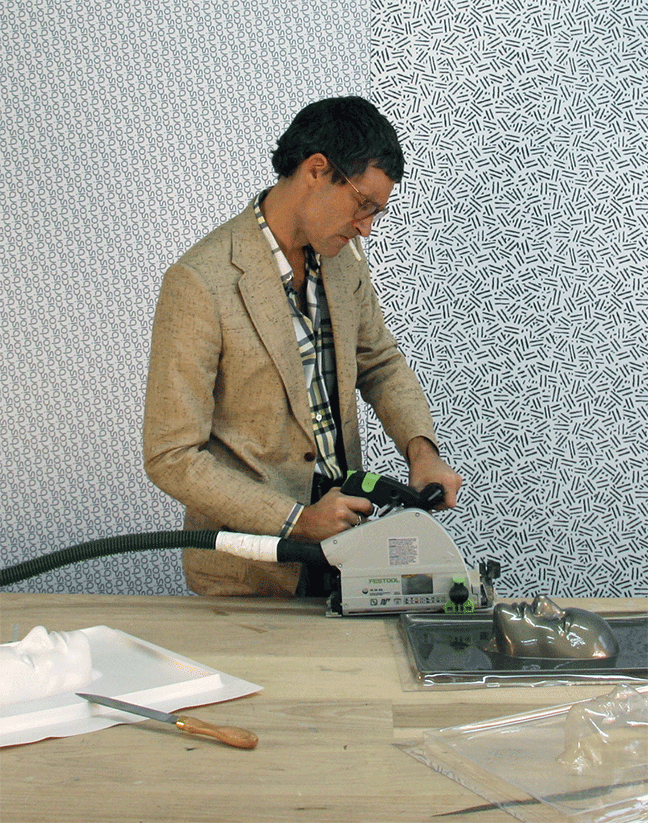
"Someone, he realized, needed to come along and devise a painterly abstraction that embodied cultural sophistication and 'nowness.' It had to look classically tasteful and refer to well-known historical byways, but it also had to be undergirded by utter contemporaneity, either of sensibility or production method. Upcycling was evolving as an idea and so was perhaps itself being upcycled: iu the early Nineties it had promsied to help the developing world redeem its waste, at the turn of the century it grew to encompass the food consumption of a smaller set of First Worlders wit extra time and money, and now it would take on fine art, an even more rarefied realm of cultural production available to only the wealthy few."
I found this, part of a much longer excerpt, in the READINGS section of the July Harper's. The whole READINGS section for the month was unusually compelling.
That is Seth Price's image, rocking back and forth, above.
Comments
Post a Comment